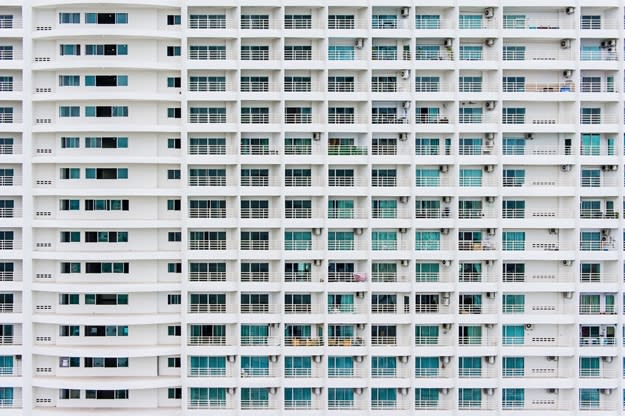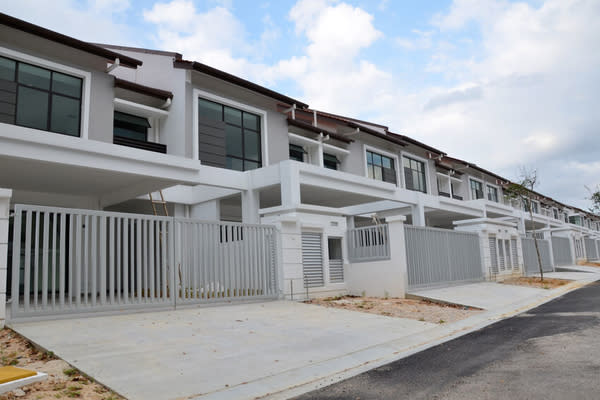Homebuyers’ Group Condemns Landlords Renting Out Capsule-Like Rooms, HLIB Research Downgrades Property Sector To ‘Neutral’ And, More

5th December – 11th December
The National House Buyers Association (HBA) slammed landlords who construct and rent out “grave-like” rooms, saying it is “inhumane”.
Meanwhile, HLIB Research has downgraded the property sector to neutral, noting that the sector may not sustain the good momentum over the coming months.
1. Homebuyers’ group condemns landlords renting out capsule-like rooms
The National House Buyers Association (HBA) slammed landlords who construct and rent out “grave-like” rooms, saying it is “inhumane”.
HBA Secretary-general Chang Kim Loong pointed that such rooms are illegal as they do not comply with health and fire safety regulations, resulting to unhygienic and unhealthy living conditions, reported Free Malaysia Today.
It was recently reported that the top floor of a shophouse within the Klang Valley was renovated to feature 38 capsule-like rooms. Spanning just 3.25 sq m and emitting an unpleasant odour, each room is rented from RM300.
Local Government Development Minister Nga Kor Ming pledged to take action against property owners who build cubicle rooms for rent. He noted that such landlords would be prosecuted under the Street, Drainage and Building Act 1974 as well as the Fire Services Act 1988.
Lawyer Bastion Pius Vendargon noted that owners looking to renovate their commercial buildings should secure planning permission from the local authorities.
“If the premises are found to have breached the UBBL, the authorities have the power to enter the building and even demolish the structure; and they are entitled to claim all expenses,” he said.
2. HLIB Research downgrades property sector to ‘neutral’
After registering a good performance, the property sector may not sustain the momentum over the coming months, said HLIB Research.
The property sector emerged as one of the sectors that performed well this year, with increased year-to-date earnings (+5.1% year-on-year), sales (+21.4% year-on-year) and launches (+1.17x year-on-year), reported The Malaysian Reserve.
The research house attributed the increased earnings to higher progress billings amid the improvement in labour shortage conditions, while the hike in sales was due to an increase in new launches.
However, it noted that property demand has not changed much this year as the domestic economy only witnessed moderate growth and this moderate growth is expected to continue next year.
“As we expect billings to normalize while sales and launches should see a more moderate growth ahead, we thus turn less bullish on the sector and downgrade our rating to ‘Neutral’ from ‘Overweight’,” said HLIB Research.
3. Only 3% lodged objections to new assessment tax rates
Out of the 807,441 property owners across five local councils in Johor, less than 3% or only 19,894 have filed objections to the recent assessment tax rate review.
The five local councils that reviewed their assessment rates were Iskandar Puteri City Council, Johor Baru City Council, Pasir Gudang City Council, Kluang Municipal Council and Pengerang Municipal Council, said Datuk Mohd Jafni Md Shukor, Chairman of the State Housing and Local Government Committee.
He underscored that 40.4% of the total number of property owners would see no change in their assessment tax, reported The Star.
The revaluation, which was carried out under the provisions of the Local Government Act 1976 (Act 171), was the first update in a decade. The last review was done in 2013.
Legally, councils are mandated to conduct reviews every five years, said Mohd Jafni.
“With a 10-year difference in revaluation works, there is a significant increase in the value of properties in some local council areas based on rapid development and economic activity as well as location of the properties,” he said.
He added that local councils also considered the additions made to buildings and residences.
4. Four property acquisitions in Perak approved under MM2H since 2020
The Perak Land and Mines Director’s office (PTG) has given the green light to four real estate acquisition applications from Malaysia My Second Home (MM2H) participants since 2020.
Menteri Besar Datuk Seri Saarani Mohamad said these acquisitions resulted to RM50,700 in levy collection as of 1 November, reported Malay Mail.
He noted that MM2H programme’s temporary suspension from September 2020 to September 2021 for review was focused on national security concerns.
In responding to Pantai Remis Assemblyman Wong May Wing’s question on the latest status of the MM2H programme and the participants in Perak, Saarani shared that the federal government has introduced new conditions for the programme in August 2021.
Notably, the fixed savings requirements for participants has been raised to at least RM1 million from between RM300,000 and RM500,000 previously.
Moreover, participants must now have a monthly overseas income of at least RM40,000, up from RM10,000 before, as well as liquid assets of at least RM1.5 million.
5. Perak sees 2,000 unsold homes in 2022
Perak registered over 2,000 unsold housing units in 2022, most of which were priced from about RM200,000 and above, said State Housing and Local Government Committee Chairman Sandrea Ng.
Kinta district had the highest number of unsold housing units at 1,065. It is followed by Manjung and Kampar with 498 and 328 units, respectively, reported The Star.
“To avoid unsold houses, developers need to be more careful in strategising and should conduct thorough market research before starting new projects,” she said.
She was responding to Steven Chaw’s (PH-Menglembu) question on the number of unsold homes and apartments in the state.
When asked on the measures taken by the state to address the overhang, she shared that the state government has introduced the Perak Housing Policy for developments spanning over 8ha.
The programme will see developers providing affordable housing, which comprise 40% of their project.
Separately, Ng revealed that almost 2,000 homes are expected to be built under the “Perakku” housing programme next year.
“Trolak, Tapah and Perak Tengah are among the locations under the plan,” she said.
6. Malaysia sees rising interest for PBWA
Purpose-built workers’ accommodation (PBWA) has gained attention as a new asset class following the COVID-19 pandemic.
Industry insiders forecast a rise in demand for well-designed and high-quality worker accommodations, reported the New Straits Times.
Majority of such assets are currently located in Johor, Selangor, Pahang and Penang, where large industrial and manufacturing facilities are situated.
KGV International Property Consultants Executive Director Sr. Samual Tan has observed growth in PBWAs in the country.
He noted that the PBWAs estimated investment yield is similar to that of owner-operator model.
“In this model, the owner assumes all risks in relation to the marketing and operations of the asset. As more variations in ownership / partnership models begin to surface, those with less involvement by owners may reflect a lower investment yield supported by a steady income stream and lower risks,” he said.
He pointed the yields of PBWAs mirrors that of industrial assets since they have a similar nature.
And unlike other asset classes, PBWAs demand lower initial construction investment and recurring capex due to less stringent requirements on periodic upgrades and fit-outs.
“In summary, the projected increase in gross revenues of PBWAs, fuelled by current demand coupled with the anticipated yield adjustment in the medium- to long-term, towards the resultant capital values of the PBWA asset class has a positive growth trajectory,” he said.
These factors position PBWAs as a sought-after asset for REITs due to their long-term and sustainable income prospect.
7. DBKL to acquire land in long-standing encroachment issue
In a bid to resolve a long-standing land encroachment issue in Taman Desa, Kuala Lumpur City Hall (DBKL) will initiate legal proceedings to acquire parts of private land where a public road was constructed ten years ago.
The land encroachment issue came to light after Datuk Edmund Lim blocked a portion of the road due to DBKL’s inaction over his complaints that the road was constructed on part of his land.
Notably, the encroachment issue affects a total of 14 households, who want DBKL to return the part of their land that was encroached, reported The Star.
“We want DBKL to return the land to us and widen Jalan Bukit Desa,” said Muhamad Jaafar, one of the affected homeowners.
City Hall shared that the decision to acquire the land, which will be made under the Land Acquisition Act 1960, was arrived following discussions at the One-Stop-Centre.
DBKL underscored that it is committed to addressing the issue, while acknowledging the concerns of the residents and the necessity for a solution.




